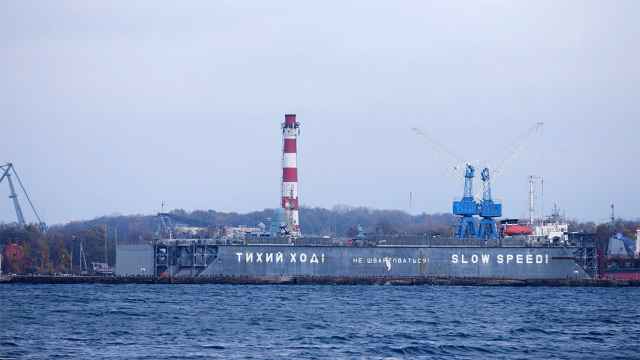Finnish authorities said Monday that a Russian telecommunications cable in the Baltic Sea was discovered damaged in October, roughly coinciding with damage to subsea infrastructure in Sweden and Finland.
"The Russian salvage vessel Spasatel Karev began to repair Rostelecom's Baltika telecommunications cable in the Gulf of Finland on Nov. 6," Finland's economic affairs ministry said in a statement.
The ministry was informed of the damage to the Baltika telecommunications cable — partly located in Finland's exclusive economic zone — by Russia's state-owned telecommunications operator Rostelecom on Oct. 12.
That was five days after a leak led to the shutdown of the Balticconnector gas pipeline between Finland and Estonia on Oct. 8.
The Swedish government also said in October that a telecommunication cable linking the Scandinavian country to Estonia was damaged at the same time as the gas pipeline.
Rostelecom told Finnish authorities that the Baltika cable, spanning around 1,000 kilometers (621 miles) from St. Petersburg to the Russian exclave of Kaliningrad, needed rapid repairs to ensure services in the region.
Finnish police said in October it believed the damage to the Balticconnector pipeline was caused by an anchor recovered at the site of the damage, likely belonging to a Chinese ship.
The authorities failed to inspect the Hong Kong-flagged Newnew Polar Bear before it sailed to Russia's northern territorial waters.
Finland's Prime Minister Petteri Orpo said the Nordic country was working with Beijing to find out more about the ship.
Last year, underwater explosions struck three of the four Nord Stream gas pipelines in the Baltic Sea, cutting off a major supply route to Europe from Russia at a time of heightened tensions between Moscow and the West over the war in Ukraine.
The cause of that sabotage remains unknown.
A Message from The Moscow Times:
Dear readers,
We are facing unprecedented challenges. Russia's Prosecutor General's Office has designated The Moscow Times as an "undesirable" organization, criminalizing our work and putting our staff at risk of prosecution. This follows our earlier unjust labeling as a "foreign agent."
These actions are direct attempts to silence independent journalism in Russia. The authorities claim our work "discredits the decisions of the Russian leadership." We see things differently: we strive to provide accurate, unbiased reporting on Russia.
We, the journalists of The Moscow Times, refuse to be silenced. But to continue our work, we need your help.
Your support, no matter how small, makes a world of difference. If you can, please support us monthly starting from just $2. It's quick to set up, and every contribution makes a significant impact.
By supporting The Moscow Times, you're defending open, independent journalism in the face of repression. Thank you for standing with us.
Remind me later.






